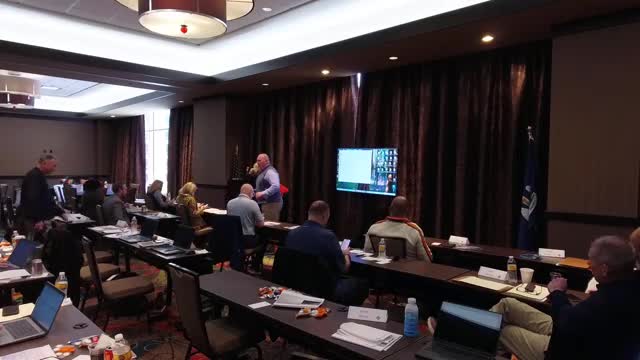Lafayette Parish leaders briefed on inventory-tax choice, deadline and fiscal trade-offs
Get AI-powered insights, summaries, and transcripts
Subscribe
Summary
A Lafayette Parish board member told fellow officials the parish will soon face a decision about whether to keep a local inventory (ad valorem) tax after a state-level change that will end a long-standing inventory-tax credit in July 2026.
A Lafayette Parish board member told fellow officials the parish will soon face a decision about whether to keep a local inventory (ad valorem) tax after a state-level change that will end a long-standing inventory-tax credit in July 2026.
Mandy, president and CEO of an economic-development organization working with Lafayette Parish, told the meeting that the inventory tax “is imposed at the local level,” and outlined options for the parish and the fiscal consequences of each choice.
The discussion centered on three choices: keep the inventory tax in place, immediately eliminate it, or phase it out over time. Under the constitutional amendment language being advanced in the legislature (referred to at the meeting as House Bill 7), the parish’s school board, the parish government and the sheriff must all agree unanimously for Lafayette Parish to eliminate or phase out the tax. The presenters said that decision must be made before July 2026 for local governments to receive state transition incentives.
Officials presented the parish’s inventory-tax revenue and distribution. Lafayette Parish collected about $27,000,000 in inventory taxes last year across all taxing bodies; that amount was described as roughly 9.7% of local property-tax collections. The presenters gave a breakdown they said reflected typical distributions in the parish: about $9,800,000 to the school system, about $6,000,000 to the parish government and about $4,800,000 to the sheriff. The assessor was not present at the meeting, the presenters noted.
Mandy said the state-level change seeks to unwind a 1991 inventory-tax credit and that the state is proposing incentives to help local governments transition. She described one incentive as “3 times a single year's annual collection, subject to a cap of $15,000,000,” meaning an immediate local decision could produce a one-time payment capped at $15 million under the current formula. The presenters also said a $50,000,000 pool of state transition money was on the table in current discussions, and they were lobbying legislators to increase that amount.
The presenters cautioned that if local officials wait until after July 2026, the state incentives described at the meeting would no longer be available. They also warned that eliminating the inventory tax could shift tax burdens and local revenue mixes: presenters said removing the tax could reduce the share of residential taxpayers’ burden if it attracts more industrial development, but they cautioned there are trade-offs and timing issues to weigh.
Attendees were given examples and local context: the presenters noted that some large developments are not yet on the tax rolls — citing a development tied to Costco that they described as a $160,000,000 project whose pilot agreement ends in 2025 — and they said recent reassessments have increased assessed values (8.6% growth in 2022 and about 9.4% in the reassessment year cited). Mandy also summarized an economic analysis her office ran, saying that if Lafayette Parish could “unwind ourselves from the inventory tax” the private sector might directly hire nearly 400 more workers at about $80,000 per year and could produce more than $200,000,000 in annual economic impact, figures she attributed to internal modeling presented at the meeting.
Presenters repeatedly urged coordination among the three required entities — the school board, the parish and the sheriff — because the local decision is binding and irrevocable under the amendment language described. The meeting included discussion of possible phase-out schedules and state-level negotiation on incentive amounts; presenters said some remarks at the meeting reflected different interpretations of phase-out timelines and that they were continuing conversations with legislators.
Officials did not take a formal vote at the meeting. Presenters encouraged local leaders to seek follow-up briefings, one-on-one meetings and further data before making any decision and said they were communicating with the parish’s legislative delegation about the proposal and the size of the state transition package.
For now, the item remains at the informational and coordination stage: local officials were briefed on the deadline, the revenue stakes, the distribution of inventory-tax receipts and the mechanics described in the constitutional amendment language being considered at the state level.
